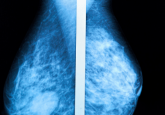AI is the new arch-nemesis of COVID-19

An AI-powered patient triage platform can foretell disease severity and how long patients will be hospitalized amid a viral epidemic.
AI has now hopped on the ‘next time there’s a pandemic, we’ll be more prepared’ bandwagon. We now have a machine learning model apt at predicting disease severity and hospitalization length for COVID-19, which can also be used for future unknown viral outbreaks.
The model was birthed through a global institutional effort, including researchers from Yale University (CT, USA) and Kapodistrian University of Athens (Greece). Composed of three key parts: a clinical decision tree incorporating important biomarkers for real-time prediction of disease prognosis, hospitalization estimation, and disease severity prediction, the platform promises to optimize patient management, effective resource allocation and overall lead to a more effective public health response to future outbreaks.
The platform was tested using a range of data collected from 111 COVID-19 patients and 342 healthy controls (healthcare workers) at Yale New Haven Hospital (CT, USA) throughout a 2-month period in 2020. This data included clinical and untargeted plasma metabolomics (the study of metabolites) data, as well as information regarding patient comorbidity.
The platform discovered that numerous plasma metabolites were correlated with COVID-19 severity, such as allantoin, 5-hydroxytryptophan, glucuronic acid and eosinophil, the latter of which could be a new potential COVID-19 severity biomarker.
This abundance of data was used to direct the platform’s predictions. Machine learning analyses were carried out to categorize patients into different classes, depending on their treatment requirements, including risk of requiring breathing assistance or intubation.
In fact, patient hospitalization length was successfully approximated within a 5-day margin of error, and predictions regarding the likelihood of ICU admission were also very reliable.
The researchers do, however, note some study limitations. For example, samples were only obtained between March and May of 2020, prior to the availability of many COVID-19 treatments and vaccines that may have altered the levels of metabolite biomarkers. Additionally, the study group of healthy controls was mainly white, while the COVID-19 patient group had a much higher percentage of black individuals. Therefore, the researchers could not eliminate the possibility of ethnicity/race influencing the results.
Despite these limitations, the study has useful real-world applications. Based on the results from the sample population, the team created accessible software (the COVID Severity by Metabolomic and Clinical Study, or CSMC) that combines machine learning and clinical data to predict patient disease prognosis and classify patients’ conditions when they arrive at the Emergency Department, supporting hospital patient management and monitoring. Bring it on viruses.





